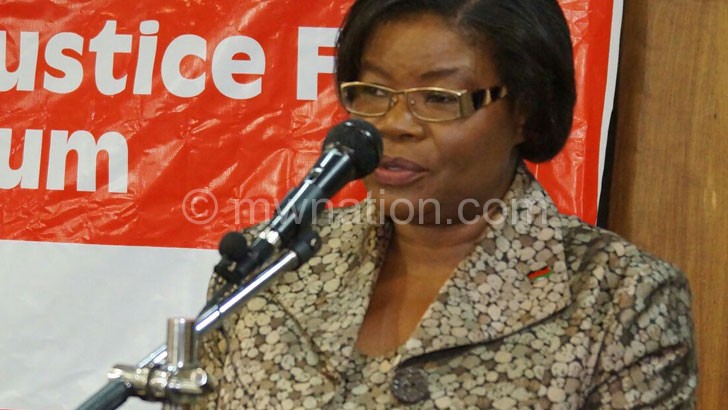Malawi pleads for support to enhance resilience on disrupted sectors
Malawi, which has been ranked the 3rd most vulnerable country to climate risk, has asked for support in form of finance for adaptation, transfer of appropriate technology, and capacity building so that it is able to implement interventions that would enhance the resilience of productive sectors and ecosystems negatively affected extreme climate events.
Chief Director in the Ministry of Natural Resources, Energy and Mining, Dr Yanira Ntupanyama while delivering the Malawi National Statement on Thursday presented at the High-level Segment of the 22nd Conference of the Parties in Marrakech, Morocco explained that Malawi looks forward with great anticipation, to the Conference adopting decisions.

“Malawi would like to concur and associate itself with the statements made by the Chairs of the Group of 77 and China, Least Developed Countries, as well as the African Group. Our leaders of these groups have made it clear, as is Malawi, that the world is justifiably waiting for our decisions with a degree of impatience, on the modalities, procedures and guidelines for the effective implementation of all elements in the Paris Agreement, which we adopted in Paris in December 2015.
“We all applauded the momentous adoption of the historic Paris Agreement on that beautiful and historical evening. It is now time for action,” she said.
She further stated that Malawi, which has been ranked the 3rd most vulnerable country to climate risk, is a country bearing the brunt of the adverse impact of climate change and yet we have not contributed to the cause of the challenge.
“The horrific impacts of climate change are continuously and adversely affecting the poorest and most vulnerable. People are dying. People are displaced. Livelihoods are threatened and disrupted.
“Generation and provision of energy is disrupted. Agricultural production is hampered. There is resurgence of human and agricultural pests and diseases affecting our country and other parts of the world as well. Countries are losing their long and hard-earned infrastructure. Economies are being pushed back due to these impacts of climate change,” said Ntupanyama.
This year, Malawi experienced severe drought and President Arthur Peter Mutharika, declared a state of disaster over the country on 12th April, 2016.
In 2015, Malawi experienced unprecedented devastating floods in living memory. The floods affected 1.1 million people, displaced 230,000 people, and killed 106 people. The floods also caused widespread damage to crops, livestock, homes, as well as roads and bridges.
“These effects are negatively affecting Malawi’s economic growth. The direct cost of droughts and floods is about 1.7% of Malawi’s GDP every year. In 2015, the GDP growth was revised downwards from a projected 5.1% to 3.1% on account of floods,” she said.
The COP-22, in Marrakesh, therefore requires us to adopt decisions that will rescue Malawi’s vulnerable populations and to enhance ecosystem services for them to be able to sustain their livelihoods, now and in future, through the post-2020 period, added Ntupanyama.
She however expressed concern that the discussions on agriculture agenda item did not conclude.
“As you may know, agriculture is the main stay of Malawi economy and suffers worst effects of climate change in our country. We hope to build on discussions that have taken place here on issues related to agriculture and look forward to an agreed decision on this item next year,” she stressed.
In her conclusion, Ntupanyama indicated that Malawi sees a great opportunity for political and moral leadership, and an increasingly urgent need for action in the face of the escalating threats to humankind.
“Developed country Parties must take the lead and show their commitment to enhancing implementation of the Convention that we all signed two decades ago”.





